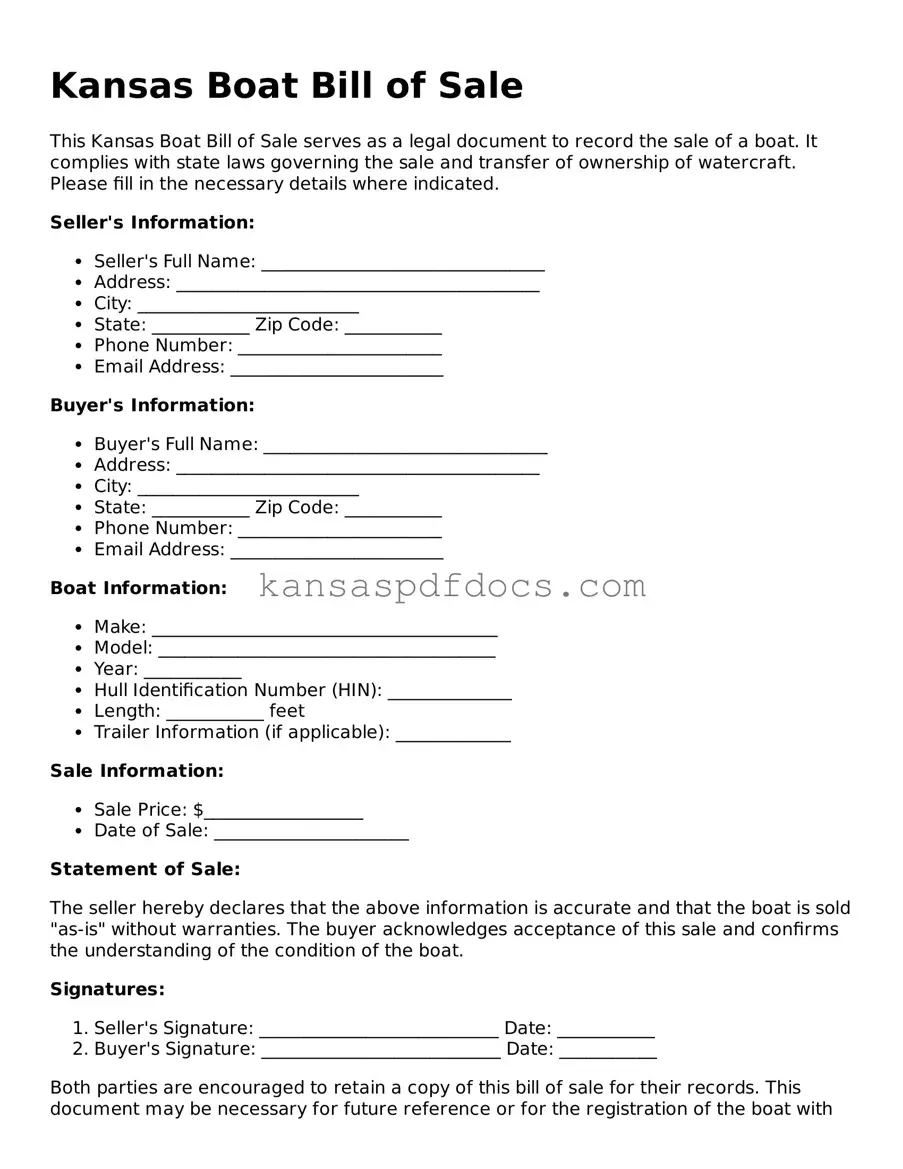Valid Boat Bill of Sale Template for Kansas State
The Kansas Boat Bill of Sale form is a crucial document used to record the sale and transfer of ownership of a boat in Kansas. This form provides essential information about the buyer, seller, and the vessel itself. Completing this document accurately ensures a smooth transaction and protects the interests of both parties involved.
Access This Form Now

Valid Boat Bill of Sale Template for Kansas State
Access This Form Now
Your form isn’t ready yet
Edit and finalize Boat Bill of Sale online without printing.
Access This Form Now
or
Get PDF Form
